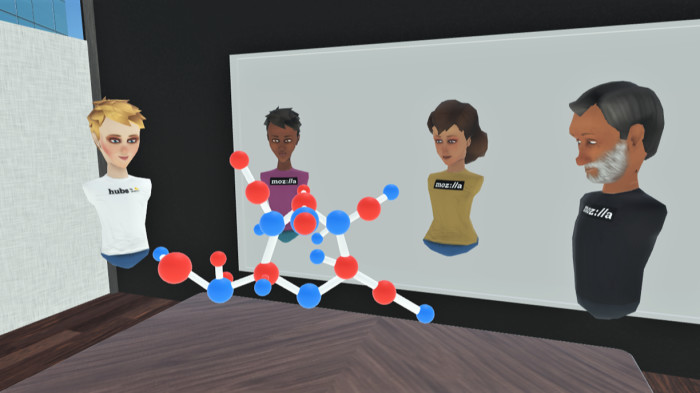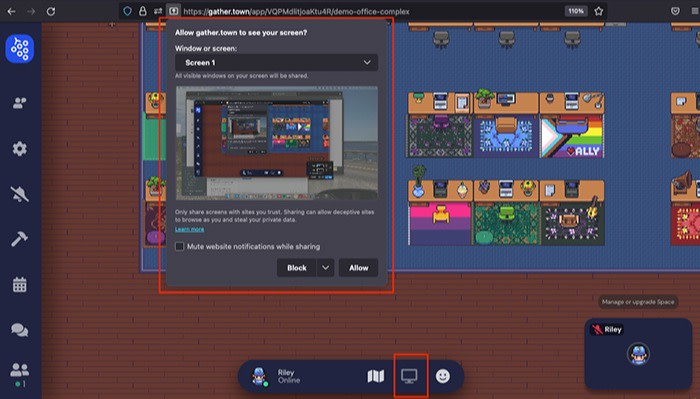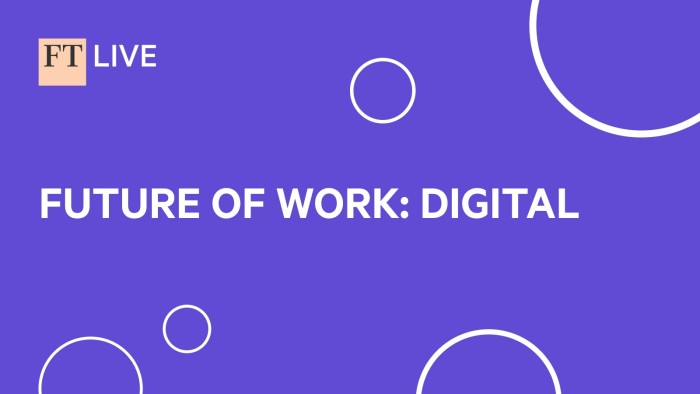Meeting in the new hybrid world of work

Roula Khalaf, Editor of the FT, selects her favourite stories in this weekly newsletter.
More than a year and half since the coronavirus pandemic began, vaccines may offer a way out of the crisis. But the impact on the world of work is unlikely to fade.
Those hoping for a return to office life as it was are likely to be disappointed. The reality is that work will be marked by hybridity, using technologies that once played second fiddle to face-to-face communication.
Making the most of this will require employers to shift their thinking on what it means to stay connected, and to consider how best to deploy technology. Endless teleconferences and passive-aggressive emails are not enough to navigate the new world of work.
The semi-return to the office poses several challenges, says Ashok Krish, global head of digital workplace at Tata Consultancy Services. Some, such as varying levels of connectivity, are obvious. Others are equally important but perhaps less evident. “We are now all working in a mode that maximises our individual productivity,” says Krish, “which means it becomes harder to co-ordinate and bring people together at the same time, being present and be willing to contribute.”
The response from managers has been to focus on setting up too many online meetings, he says, but while the number has risen, the amount of attention paid in each has fallen. Few will be unfamiliar with Zoom fatigue, the result of frequent and overlong meetings marred by poor connections and often irrelevant conversations.
In part, that represents a somewhat limited approach to technology. Certainly, teleconferencing has been a vital tool for practically every white-collar industry, allowing both intimate work meetings and global conferences to continue. But the most popular apps are not the only options for digital meetings — there is a rich seam of alternatives that bring more inventive and free-form styles.
Tools such as Gather package teleconferencing within a 2D digital world resembling a bar or pub. People fade in and out depending on how close your avatar is to them; sitting at a table creates a private conversation only for those also with a chair. Hubs, created by Mozilla, offers a similar experience, albeit in 3D, with more customisable avatars and more expansive scenery. It offers a scene editor for those keen to build more scale models of offices or world landmarks, depending on their taste and degree of vainglory.

There is an element of digital world-building that was a hallmark of the early pandemic, when video games such as Animal Crossing and Minecraft offered a chance for cyber-escapism to sunnier climes, to university campuses or simply away from reality. But it is not the frivolity of Gather or Mozilla that is so interesting — it is that they can generate a feeling of “being”. Working remotely can often feel an ethereal existence, but using tools that attempt to simulate aspects of an in-person experience can go a long way to helping us stay connected.
Facebook also announced in August that it is stepping into the space with a free VR app called Horizon Workrooms. This features an avatar creation system, allowing users to interact with each other in the form of cartoonish characters. Chief executive Mark Zuckerberg has previously talked of creating a “metaverse”, a digital space for both social time as well as work.
Making the most of the new reality, though, is not merely about adopting new tools. Those studying to be the next generation of managers also need to develop skills to maximise the effectiveness of hybrid working, according to Krish. “The single biggest additional skill every employee seems to require right now is ‘digital dexterity’,” he says. “It’s not enough to be an expert in the area that your whole role demands — [you must also understand] other areas that are digital in nature and adjacent to your core responsibilities.”
In short, being a hyper-specialist is no longer an option — companies need widely knowledgeable, multiskilled employees. “For example, if you are a digital marketer, you need to understand social media tools, social media analytics tools and cloud computing to be successful at your job,” Krish adds.
The second skill he underlines is being digitally dexterous when it comes to remote collaboration. “We are now living in a world where everyone . . . can be distributed — they may be sitting in different [places]. People doing the same job in a specific timezone may also be working in multiple places and context-switching between work and life, especially if they’re working from home.”
New FT Live event

FT’s Future of Work event series is back this October. Join Facebook, LinkedIn, AstraZeneca, Nasa, and more as they explore key themes such as omnichannel workplaces, the impact of AI on jobs, privacy and security issues in distributed workforces. To book tickets, visit here
Given the success of technology stocks during the pandemic and the preponderance of tech in our lives, an emphasis on social skills may sound odd. Yet such strengths are more important than ever, as we begin to put lives fractured by a pandemic back together in ways that will be both familiar and new.
“Finally, to make hybrid work successful, companies need a culture of ‘working out loud’,” says Krish, to avoid tuning out of the culture of the organisation in which they work. “People need to deliberately ‘work out loud’ and broadcast what they’re doing, while managers should proactively reach out to team members who may need help.”
Tech tools are playing a vital role in keeping organisations connected and could play an even bigger role with smart choices. But, ultimately, the success of remote working relies on workers and their employers being committed to strong relationships.
The return to the office
We want to hear from readers about plans for returning to their workplace. Are you under pressure to go back or are you looking forward to seeing colleagues? Tell us about your plans via this survey.
Comments